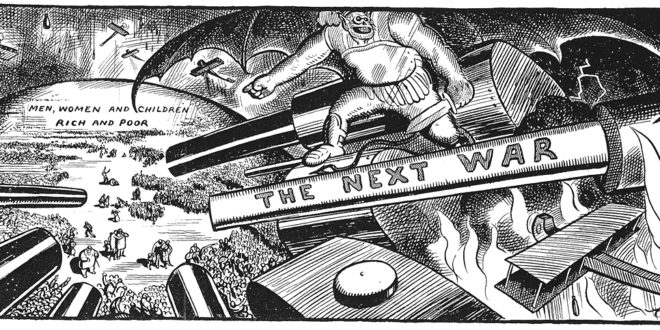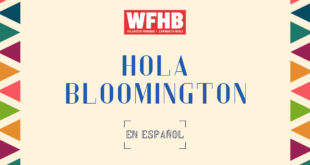Podcast: Play in new window | Download (Duration: 59:00 — 81.0MB)
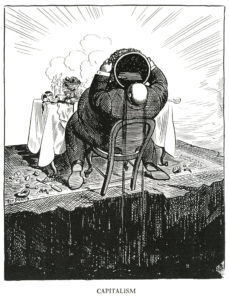 Born in 1866 Art Young was the exact contemporary of W. E. B Du Bois though Du Bois would outlive him by 20 years, and he was about a decade younger than the great Indiana Socialist Eugene V. Debs. Young was the most widely recognized and beloved cartoonist of the golden age of American radicalism. Spanning the Age of Monopoly (1877-1929), the The Gilded Age giving way to the so-called Progressive Era, his images gave a visual design and humorous edge to a rising wave of socialist, labor and anti-capitalist mass movements. Together they organized to oppose the unchecked power of monopoly capitalism, Wall Street finance and militant nationalism.
Born in 1866 Art Young was the exact contemporary of W. E. B Du Bois though Du Bois would outlive him by 20 years, and he was about a decade younger than the great Indiana Socialist Eugene V. Debs. Young was the most widely recognized and beloved cartoonist of the golden age of American radicalism. Spanning the Age of Monopoly (1877-1929), the The Gilded Age giving way to the so-called Progressive Era, his images gave a visual design and humorous edge to a rising wave of socialist, labor and anti-capitalist mass movements. Together they organized to oppose the unchecked power of monopoly capitalism, Wall Street finance and militant nationalism.
Artist and activist, Art Young’s work records his direct involvement in the political struggles that shaped his age. His career stretches between his jailhouse portraits of the Haymarket Anarchists, drawn just days before their execution in 1887, to a Fourth of July picnic in 1918 with John Reed at the home of Gene Debs, just a few days before his arrest for giving an anti-war speech. Nearly unique in the history of political cartooning and the American Left, as an artist Art Young was capable of leading a mass anti-capitalist movement while also reaching deep into the mainstream of American media.
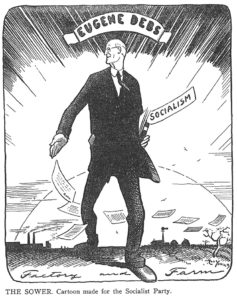 Rarely have visual artists played such a prominent role in political organizing as they did in the Haymarket Generation. Young stood at the center of a large community of cartoonists, working class artists and bohemian modernists who forged a distinctive style of revolutionary art for the new century. ‘‘The true art of the untrammeled cartoonist is now being developed,” wrote Debs in 1912, “and he will be one of the most inspiring factors in the propaganda of the revolution.” As Debs insisted: “Cartooning capitalism is far more inspiring than capitalistic cartooning.”
Rarely have visual artists played such a prominent role in political organizing as they did in the Haymarket Generation. Young stood at the center of a large community of cartoonists, working class artists and bohemian modernists who forged a distinctive style of revolutionary art for the new century. ‘‘The true art of the untrammeled cartoonist is now being developed,” wrote Debs in 1912, “and he will be one of the most inspiring factors in the propaganda of the revolution.” As Debs insisted: “Cartooning capitalism is far more inspiring than capitalistic cartooning.”
While Young was the unpaid cartoon editor of the Socialist magazines The Masses and The Liberator, he published everywhere, in newspapers next to the work of Thomas Nast or liberal magazines like Life or The Nation, and for his troubles, Art Young was sued, censored, banned from the mail, and nearly spent decades in prison, narrowly escaping in two federal trials for sedition and conspiracy in 1918.
Today much of the history of American radicalism, including the work of Art Young, languishes in obscurity just when it is needed most. But be cheered, along with Cohen’s website, there are now two collections of Young’s work in print, both out from Fantagraphics, To Laugh that We May Not Weep and Art Young’s Inferno.
 GUEST
GUEST
Michael Mark Cohen is an associate teaching professor of American Studies and African American Studies at the University of California at Berkeley and the author of The Conspiracy of Capital: Law, Violence and American Popular Radicalism in the Age of Monopoly (UMass Press, 2019). He’s the creator of the website, Cartooning Capitalism: Art Young and the Cartoons of American Radicalism, from where I stole a lot of the above introduction.
RELATED
Cartooning Capitalism: Art Young and the Cartoons of American Radicalism
Radical Art: Art Young and the Cartoons of American Socialism by Michael Mark Cohen
Art Young: A Cartoonist for the Ages by Françoise Mouly and Art Spiegelman
With Gene Debs on the Fourth by John Reed
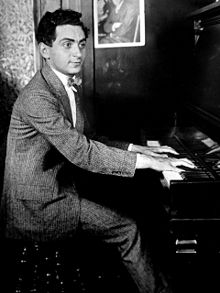
MUSIC – Irving Berlin
Irving Berlin was born in 1888 in a shtetl in what is today Belarus and emigrated to New York City at the age of five, and was destined to be the greatest songwriter in the country’s history. His songbook is America’s Songbook. Lyrics about freedom and liberty and money and sex and getting rich and war and a white Christmas and even how pleasant it is “away down South.” Perhaps Berlin’s lyrics represent the dominant ethos in the US. Let’s call this episode of Interchange its counter-statement.
“Top Hat, White Tie and Tails” – Louis Armstrong – Louis Under the Stars (1958)
“Getting Nowhere” – Bing Crosby (1946) – Blue Skies
“Freedom Train” – Peggy Lee and Johnny Mercer (1947)
“Can You Use Any Money Today” – Dinah Shore (1950) – Call Me Madam
“Follow the Crowd” – Irving Berlin (1914)
CREDITS
Producer & Host: Doug Storm
Executive Producer: Kade Young
 WFHB Bloomington Community Radio
WFHB Bloomington Community Radio
